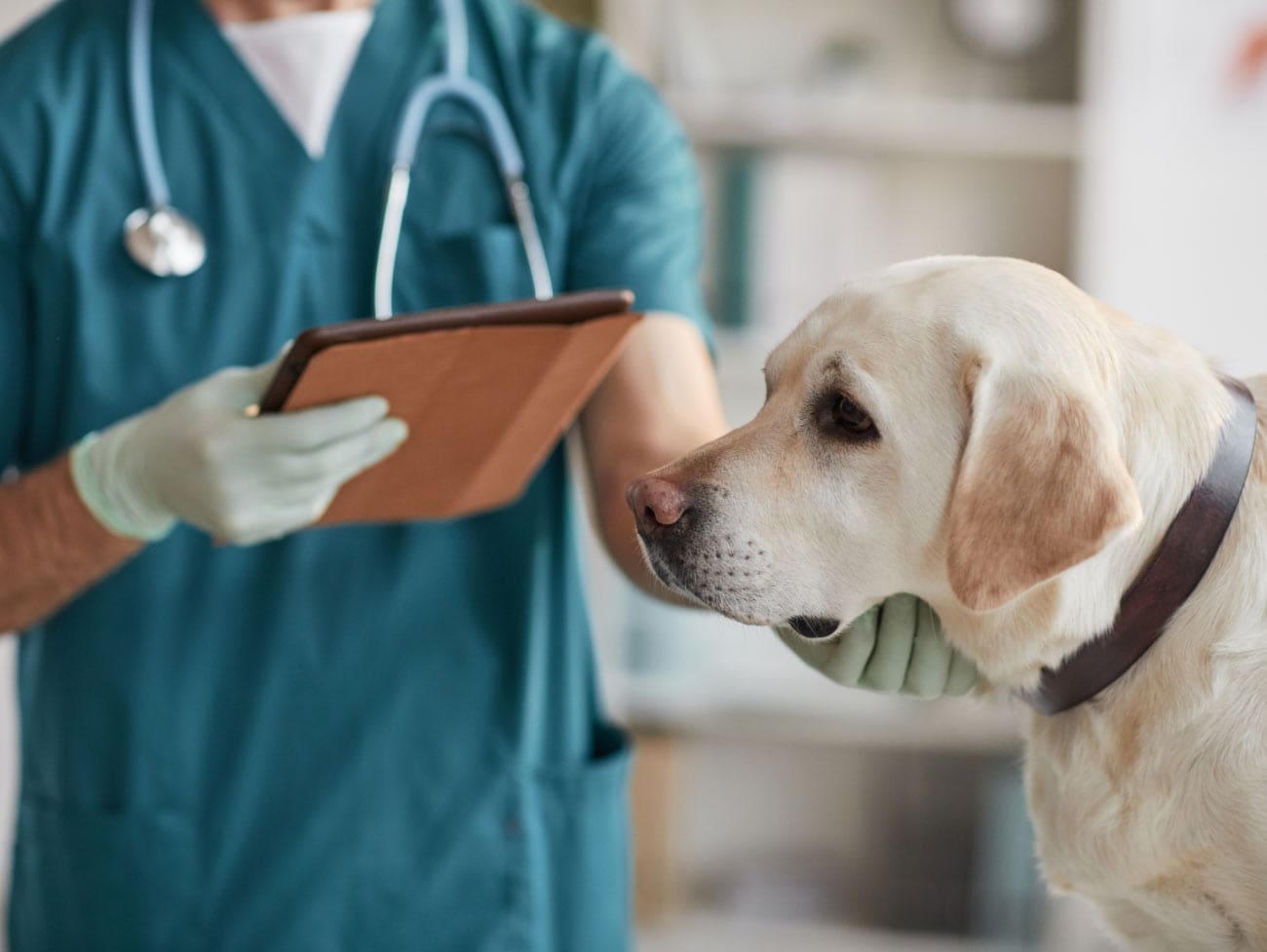The Facts about Canine Infectious Respiratory Disease Complex (Kennel Cough)

If you follow the news, you have no doubt heard something about “kennel cough”, a respiratory virus affecting dogs, particularly in the United States. Reported symptoms include coughing, sneezing, nasal or eye discharge, and lethargy, with some cases leading to pneumonia.
The amount of media coverage of this sickness can be concerning for pet owners. Your pet is a member of the family. You want to keep your pet safe and dread the thought of anything bad happening to them. So, is kennel cough something you need to be worried about it?
What is kennel cough?
Kennel cough is a broad term often used to describe any infectious or contagious condition in dogs where coughing is one of the major clinical signs. Several viruses and bacteria can cause kennel cough, often simultaneously, including adenovirus type-2 (distinct from the adenovirus type-1 that causes infectious hepatitis), parainfluenza virus, canine influenza virus, canine coronavirus, and the bacterium Bordetella bronchiseptica. That’s why the technical term is canine infectious respiratory disease complex (CIRDC).
The infection usually spreads when dogs are together, especially indoors. It is often noticed soon after dogs spend time in kennels, hence the name “kennel cough”.
What are the signs of CIRDC?
Clinical signs of CIRDC vary. The disease is often mild, though the cough may be chronic, sometimes lasting several weeks. Common signs include:
- a loud cough, often described as a “goose honk”
- runny eyes and nose
- swollen tonsils
- wheezing
- lack of appetite
- depressed behavior
The cough may look more like retching in some cases, and the dog may cough up froth that could be mistaken for vomit. Most dogs with CIRDC cough when the throat is rubbed or palpated, and during and after exercise.
In most cases, a dog with CIRDC recovers within one to two weeks. However, pneumonia can occur, especially in immunocompromised pets, including puppies, senior dogs, and brachycephalic dogs (like French bulldogs and pugs). Signs of pneumonia include obvious lethargy, fever, a wet cough, and difficulty breathing.
How does a dog get CIRDC?
CIRDC is very contagious. Dogs can spread it before they show any signs of disease, and they may never show signs of disease. CIRDC is spread through respiratory droplets (from a cough or sneeze), so dogs readily transmit it through casual contact, such as sniffing each other when on a walk, playing, or sharing water dishes.
Some of the infectious organisms can survive for a long time in the environment, so it’s possible to spread it even without dog-to-dog contact, such as contact with people’s hands or other contaminated surfaces. Certain factors increase the likelihood of your dog contracting CIRDC, including stress, poor ventilation, and crowded conditions.
How can I protect my dog from CIRDC?
- Make sure your dog is up to date with their recommended vaccines, including adenovirus and parainfluenza. If your dog is around any other dogs (boarding, grooming, dog park), they should also have a parainfluenza vaccination at least yearly. Bordetella vaccination is also highly recommended for these higher risk dogs. Your veterinarian may also recommend vaccination for canine influenza, depending on your dog’s lifestyle and environment. Discuss specific vaccination recommendations for your dog with your veterinarian.
- Keep informed of any outbreaks of canine disease in your community. Your veterinarian is often the best resource for this. Other resources include veterinary school websites and your state or provincial animal health departments/ministries.
- In an outbreak situation, try to avoid dog group contact where possible, including dog parks, daycare, and boarding facilities.
- Wash your hands regularly, and especially after petting someone else’s dog.
- Plan ahead: If you are travelling with your dog, check to the state or provincial animal health departments/ministries see if that community is experiencing any CIRDC outbreaks.
Should I be worried about CIRDC outbreaks?
Outbreaks of CIRDC are not a new phenomenon. The infectious organisms responsible for this disease constantly circulate through the environment in North America, much like human cold and flu viruses. Social media has allowed us to spread information about our pets’ health much further and faster than ever before, prompting a heightened awareness and an increased anxiety in pet owner communities. Contact your veterinary team to ensure your dog’s vaccinations are up to date and report any concerns.
Is CIRDC contagious to humans?
It is uncommon, but Bordetella bronchiseptica can affect people, most often those who are immunocompromised. Contact your doctor if you don’t feel well.
What is the bottom line on CIRDC/kennel cough infections?
It can be scary to see respiratory viruses appearing in dogs, especially after going through a pandemic and all the fear and worry associated with that. It’s important to know the facts and put your dog’s risk into context. CIRDC infection goes through yearly ups and downs, much like cold and flu infection in humans.
No matter the situation, it’s always wise for both you and your pet to practice good hygiene and infection control measures, because no one likes being sick if it’s avoidable! Take precautions where you can and contact your veterinarian if you ever have any questions or concerns for your pet.
LifeLearn News
Note: This article, written by LifeLearn Animal Health (LifeLearn Inc.) is licensed to this practice for the personal use of our clients. Any copying, printing or further distribution is prohibited without the express written permission of Lifelearn. Please note that the news information presented here is NOT a substitute for a proper consultation and/or clinical examination of your pet by a veterinarian.



